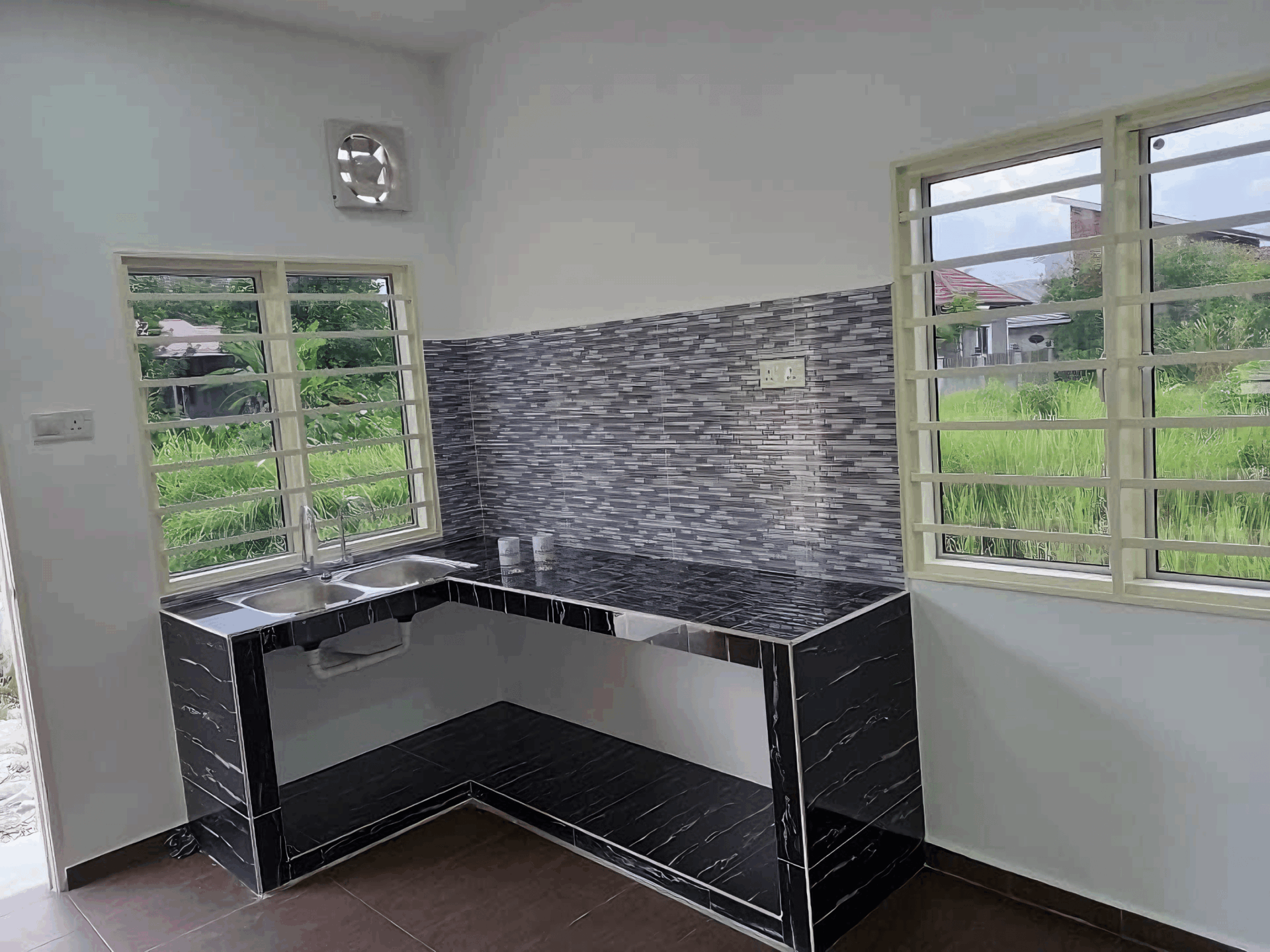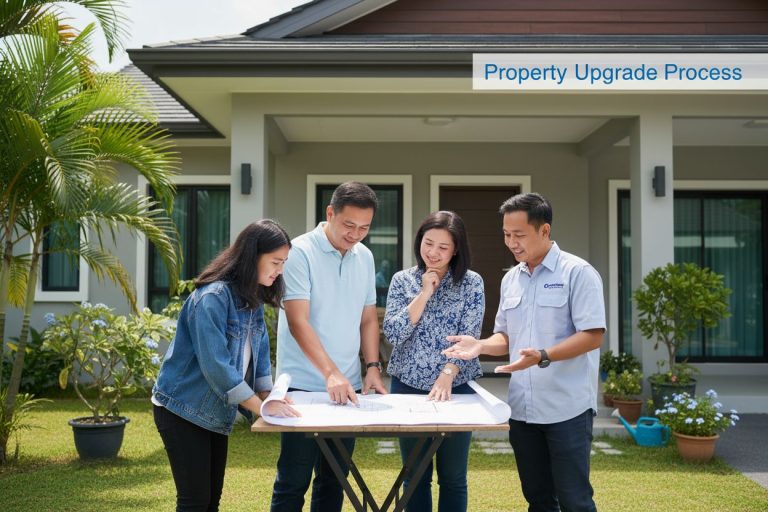Are you gearing up for a construction project in Malaysia? Whether you’re building a cozy home, a bustling commercial space, or anything in between, navigating the complexities of project management can feel like wandering through a maze. From making sure your budget doesn’t spiral out of control to keeping your team motivated and on the same page, there’s a lot to juggle. But don’t sweat it! We’ve compiled a list of 10 handy tips to help you steer your construction project smoothly and efficiently. So, grab a drink, take a breather, and let’s dive into some easy strategies to keep things running like clockwork!
Understanding the Unique Challenges of Malaysian Construction Projects
Construction projects in Malaysia face a variety of unique challenges that can complicate project management processes. One of the most significant hurdles is the diverse landscape and climate, which can impact everything from scheduling to material selection. Rainy seasons can cause delays and lead to larger project timelines, whereas the integration of indigenous resources may require adjustments in techniques and labor skills. It’s essential to have contingency plans in place to mitigate the impact of such environmental factors.
Another critical aspect to consider is the ever-evolving regulatory environment. Malaysian authorities often amend building codes and regulations, which can make it difficult to stay compliant throughout the project lifecycle. Additionally, the need for various approvals from local authorities can cause significant delays if not managed proactively. A thorough understanding of regulatory requirements, along with a robust communication strategy with stakeholders, is vital for maintaining project momentum.
Lastly, the cultural diversity in Malaysia can be a double-edged sword when it comes to teamwork and collaboration. With a melting pot of ethnicities, languages, and traditions, effective interpersonal communication can sometimes be a barrier. Project managers need to foster an inclusive culture that respects these differences and leverage them to build stronger teams. Implementing regular team-building activities and open forums for dialogue can significantly enhance collaboration and drive a project toward success.

Setting Clear Objectives for Successful Project Delivery
When embarking on a construction project in Malaysia, clarity is crucial. Establishing clear objectives from the get-go lays the groundwork for smooth operations. What outcomes do you want to achieve? It’s essential to define not just the final goals but also the milestones that will guide your team along the way. This process involves brainstorming sessions with stakeholders to ensure everyone’s on the same page. Regular communication fosters an environment where ideas can flourish, and potential obstacles can be addressed early on.
Utilizing the SMART criteria—making objectives Specific, Measurable, Achievable, Relevant, and Time-bound—can elevate your project framework. Here’s why SMART objectives work:
- Specific: Clear, concise goals avoid ambiguity.
- Measurable: Establishing key performance indicators helps track progress.
- Achievable: Objectives should be realistic; stretch goals can lead to frustration.
- Relevant: Align goals with the overall project vision.
- Time-bound: Setting deadlines keeps everyone accountable.
Using this framework, project managers can set a pathway that aligns resources and timelines with the ultimate vision.
To make your objectives even clearer, consider utilizing a simple table to outline your goals and associated deadlines. This creates a visible roadmap for everyone involved. Here’s a quick example:
| Objective | Deadline | Responsible Party |
|---|---|---|
| Complete Site Assessment | March 15, 2025 | Project Manager |
| Obtain Required Permits | April 1, 2025 | Legal Team |
| Start Groundbreaking | April 15, 2025 | Construction Lead |
This layout helps ensure that every team member knows their responsibilities and the timeline involved. Clear objectives pave the way for successful project delivery, allowing your Malaysian construction project to flourish.

Effective Communication Strategies to Foster Team Collaboration
When it comes to boosting team collaboration, clear communication is your best friend. Encourage open channels where everyone feels comfortable sharing ideas and asking questions. Keeping a dedicated platform, like a Slack channel or a WhatsApp group, can really help streamline conversations. Just make sure everyone knows how to use it properly – that way, no one feels left out or confused. Regular check-ins can also help keep everyone on the same page and create a rhythm that your team can rely on.
Another key factor is active listening. It’s super important to not just hear what your teammates are saying, but to really understand and respond thoughtfully. Encourage team members to repeat back what they’ve heard to confirm understanding. This little trick can prevent miscommunication and show that everyone’s input is valued. Don’t forget to celebrate successes, too! Recognizing individual contributions helps in building a more connected team dynamic.
| Communication Tool | Best Use |
|---|---|
| Slack | Casual team discussions |
| Microsoft Teams | Formal meetings and file sharing |
| Trello | Project tracking and updates |
remember to adapt your communication style based on your team’s unique needs. For example, some members might prefer written updates, while others respond better to visual presentations. Encourage team members to express their preferences so everyone feels comfortable. In the fast-paced world of construction, having the flexibility to pivot your approach can lead to smoother teamwork and project progress.

Harnessing Technology for Enhanced Project Management
In the fast-paced world of construction, technology can be a game-changer. Leveraging advanced software tools and applications can streamline your project management efforts significantly. Project management software helps in tracking progress, managing budgets, and facilitating communication between team members. With features like real-time updates and centralized documentation, everyone involved can stay on the same page, reducing misunderstandings and miscommunication.
Utilizing cloud-based platforms allows you to access project data anytime, anywhere, which is crucial for teams that operate on-site and need instant information. This flexibility ensures that project managers can monitor milestones efficiently and resolve potential issues before they escalate. Plus, using mobile apps means your team can log updates on-the-go, making it easier to adapt to unexpected challenges that may arise during construction.
| Tech Tools | Benefits |
|---|---|
| Project Management Software | Centralized tracking and improved collaboration. |
| Cloud Storage | Accessible data anytime, reducing delays. |
| Mobile Applications | Real-time updates and easy communication. |
consider incorporating data analytics into your project management strategy. It allows for better decision-making by analyzing project trends and outcomes. By using data-driven insights for design-build firms in Malaysia, teams can optimize processes and allocate resources more effectively, ultimately driving project completion on time and within budget. Embracing these technological advancements not only enhances efficiency but also positions your construction projects for greater success in the competitive Malaysian market.

Budgeting Wisely to Avoid Common Pitfalls
When managing a construction project, it’s vital to approach budgeting with a strategic mindset. A well-structured budget is more than just a number; it’s a roadmap that guides your entire project. To avoid the common pitfalls that many face, consider implementing the following strategies:
- Create a Contingency Fund: Set aside a percentage of your budget for unexpected costs. This gives you a cushion to deal with surprises without derailing the entire project.
- Regularly Update Your Budget: Construction is dynamic, and costs can fluctuate. Regular reviews will help you respond to changes promptly and keep your project on track.
- Involve Stakeholders: Include contractors, team members, and key stakeholders in budget discussions. Their insights can reveal potential issues and help create a more comprehensive budget.
Moreover, it’s important to have a clear understanding of all the costs involved. This means breaking down your budget into specific categories. Here’s a simple breakdown that can help you visualize:
| Cost Category | Estimated Percentage of Budget |
|---|---|
| Labor | 30% |
| Materials | 40% |
| Permits & Fees | 10% |
| Contingency Fund | 10% |
| Other Expenses | 10% |
A clear budget plan not only helps in tracking expenses but also plays a crucial role in communicating your project’s financial health to stakeholders. Transparency is key; it builds trust and ensures everyone is on the same page. By adhering to these budgeting practices, you can significantly minimize risks and increase your chances of completing your construction project successfully and within budget.

Implementing Risk Management Practices for Unforeseen Issues
When embarking on a construction project in Malaysia, it’s essential to have a plan in place for those unforeseen bumps along the road. Embracing risk management practices helps you anticipate potential problems and formulate responses that can save both time and resources. Regularly performing risk assessments allows your team to pinpoint vulnerabilities specific to your project and location, thus setting the foundation for proactive measures.
Staying flexible and receptive to changes is key. You might consider setting up a risk management team whose role is simply to monitor ongoing project developments and evaluate risks as they arise. Encourage open lines of communication among team members—this will create an environment where everyone feels comfortable sharing concerns or suggestions. Here are a few steps to implement:
- Identify potential risks regularly.
- Rank risks by impact and likelihood.
- Create action plans for high-priority risks.
- Conduct regular risk reviews and update plans accordingly.
Additionally, having a contingency budget could be a lifesaver in mitigating the financial impact of unforeseen issues. Setting aside a portion of the project’s total budget for risk response ensures that you’re not left scrambling when things don’t go as planned. Below is a basic outline for a contingency budget plan:
| Contingency Area | Estimated Percentage | Estimated Amount (RM) |
|---|---|---|
| Design Changes | 10% | 50,000 |
| Material Price Increases | 5% | 25,000 |
| Unexpected Delays | 15% | 75,000 |
By establishing these strategies and practices, you’ll not only enhance your project’s efficiency but also build a culture of preparedness within your team. Remember, projects may unfold in unexpected ways, but with strong risk management practices, you can navigate these uncertainties with confidence.

Monitoring and Evaluating Progress Regularly for Continuous Improvement
It’s crucial to keep an eye on your project’s progress. Regularly monitoring your construction project allows you to spot issues before they balloon into major setbacks. This means conducting weekly or bi-weekly reviews to assess what’s working and what’s not. By staying on top of every phase, you can ensure that goal posts don’t just exist in theory but are actively met in practice.
To make the most of your evaluation process, consider implementing the following strategies:
- Set Clear KPIs: Develop key performance indicators that align with your overall project objectives.
- Collect Feedback: Engage with your team to gather insights and perspectives on project operations.
- Adjust Plans Accordingly: Don’t be afraid to pivot your strategy based on what the data is telling you.
Creating a simple but effective evaluation template can streamline this process. Here’s an example of what your monitoring table might look like:
| Phase | Status | Action Required |
|---|---|---|
| Foundation | Completed | None |
| Framing | In Progress | Increase workforce |
| Roofing | Pending | Schedule materials delivery |
By utilizing such simple tools and methods, you’ll create a culture of continuous improvement, allowing your Malaysian construction project to thrive at every step!

Building Strong Relationships with Stakeholders for Long-Term Success
In the dynamic world of construction management in Malaysia, the importance of forging robust connections with stakeholders cannot be overstated. Engaging with everyone from investors to local communities nurtures a sense of collaboration and trust. This partnership goes beyond mere transactions; it’s about establishing dialogues that allow you to share insights, address concerns, and celebrate achievements together. A proactive approach will encourage open communication, which is essential for problem-solving and decision-making throughout the project lifecycle.
Building rapport requires striking the right balance of communication and empathy. Consider organizing regular stakeholder meetings or workshops that focus on their interests and concerns. This can foster a sense of inclusion and commitment to the project’s goals. Additionally, utilizing digital platforms for updates helps bridge geographical gaps, ensuring that everyone feels informed and valued. Don’t underestimate the power of personal relationships—often a simple coffee chat can lead to valuable insights and build loyalty.
Moreover, documenting and sharing progress transparently strengthens stakeholder confidence. Create a summarized table that highlights key milestones achieved and upcoming objectives, allowing stakeholders to visualize the project’s evolution.
| Milestone | Date Achieved | Next Steps |
|---|---|---|
| Site Preparation | March 5, 2025 | Begin Foundation Work |
| Foundation Laid | April 20, 2025 | Start Framing |
| Roof Structure Completed | June 15, 2025 | Initiate Interior Work |
Creating structured updates not only keeps everyone in the loop but also demonstrates accountability. Stakeholders who feel engaged are more likely to support your endeavor, paving the way for potential future partnerships and ensuring the success of your construction project.
Closing Remarks
So there you have it—our top 10 project management tips to keep your construction project in Malaysia moving like a well-oiled machine! Whether you’re swinging hammers or managing budgets, remember that good communication, planning, and a touch of flexibility can work wonders. Don’t forget, every project is a learning experience, so embrace the challenges that come your way and take notes for the next round. With these tips in your toolkit, you’ll be better equipped to tackle any hiccups on-site and keep everything on track. Now, go ahead and turn those blueprints into reality! Happy building!







